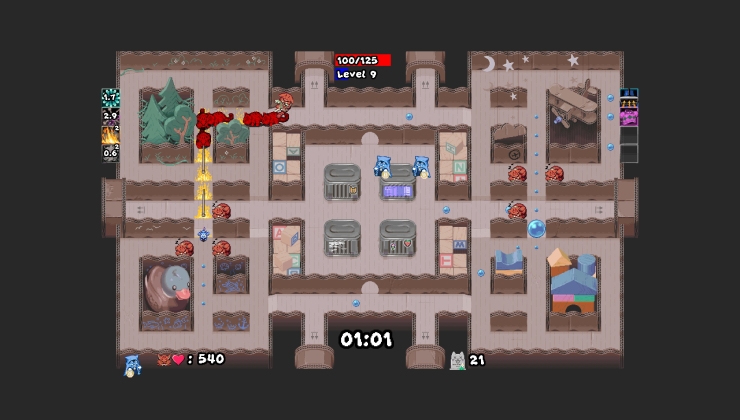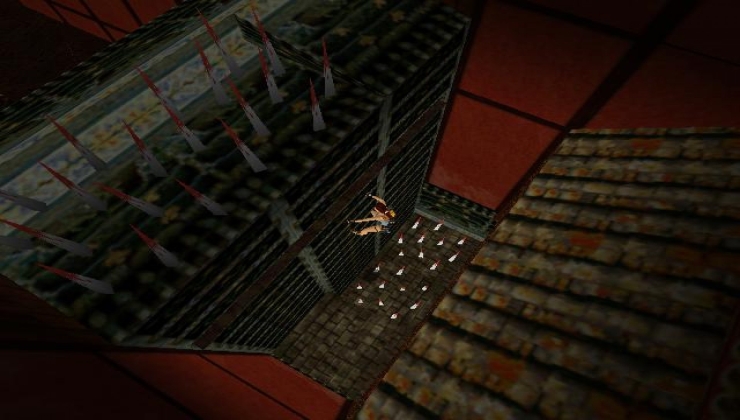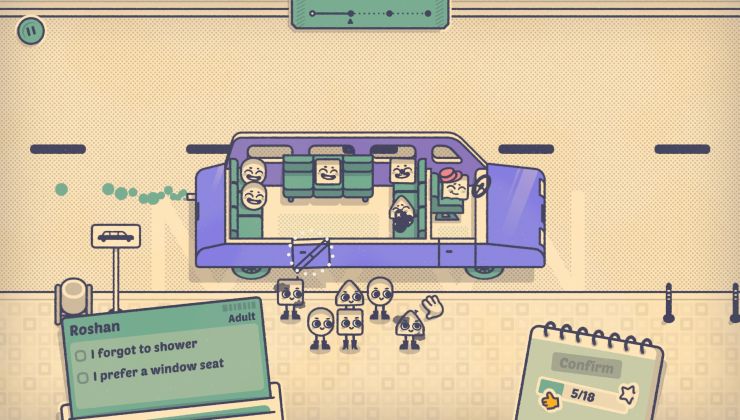After a rather short testing period with the release candidates only being announced a few days ago, Valve has now pushed out the official release of Steam Play Proton 5.13-6.
If you're not clear on what Proton and Steam Play are, be sure to check out our constantly updated dedicated page. It's a special compatibility layer for running Windows games and apps from Steam on Linux.
What's new and improved in Proton 5.13-6? Here's the improvements and fixes to be found:
- Previously in Experimental: Fixed Cyberpunk 2077 world sound issues
- Previously in Experimental: Improved controller support and hotplugging in Yakuza Like a Dragon, Subnautica, DOOM (2016), and Virginia
- Nioh 2 is now playable
- Fixed black screen on focus loss in DOOM Eternal on AMD
- Restored VR support in No Man's Sky
- Voice chat in Deep Rock Galactic is now functional
- Better support for PlayStation 5 controllers
- Sound in Dark Sector is working now
- Fixed Need for Speed (2015) hang on AMD
- More fixes for game input being active while the Steam overlay is up
The full Proton changelog can be viewed here as normal.
How to update? Simply ensure you have Proton 5.13 installed on Steam, it will update as other apps and games do normally through Steam directly.
Some you may have missed, popular articles from the last month:
All posts need to follow our rules. For users logged in: please hit the Report Flag icon on any post that breaks the rules or contains illegal / harmful content. Guest readers can email us for any issues.
I loved most the release of the Steam client on Feb 05.
That bug annoyed me a lot.
Fixed a bug on Linux where compatibility tool selection wasn’t displaying correctly
That bug annoyed me a lot.
1 Likes, Who?
Anyone knows if this also fixes the multiplayer issues recently introduced by the 64bit port of Company of Heroes 2?
0 Likes
I still got frequent crashes on Death Stranding w/ Proton 5.13-5 and NVidia driver 460.39 under Debian stable. Anyone with the same issues ? (and yes re-validating files quite often does not fix it)
0 Likes
I still got frequent crashes on Death Stranding w/ Proton 5.13-5 and NVidia driver 460.39 under Debian stable. Anyone with the same issues ? (and yes re-validating files quite often does not fix it)
I'm on Proton Experimental with that but will switch over and play a bit later today to see if it crashes. I'm on Manjaro / NVidia and I've actually never had that game crash on me. I'm even running ReShade on top of it.
I have found some games are crashy in certain screen modes. Like some will hate Fullscreen.
0 Likes
The Cyberpunk 2077 fix affects me and I'm really happy to see that released!
I'm also very happily surprised that they fixed in-game voice chat in Deep Rock! I had settled with the idea that that would never happen. This will greatly improve playing with randos.
I'm also very happily surprised that they fixed in-game voice chat in Deep Rock! I had settled with the idea that that would never happen. This will greatly improve playing with randos.
0 Likes
A few games I've tried it on (that worked before) exit immediately after starting; anyone else seeing that?
0 Likes
I hope that these fixes come to wine and wine staging too.
Using the base of proton shouldn't be a punishment for too long.
Using the base of proton shouldn't be a punishment for too long.
0 Likes
If they can figure out why performance drops/tanks in areas for AMD RNDA2 (maybe other amd cards) then I'll be over the moon.
KCD and GTA5 were good test cases when directly comparing 4k fps drops below 60fps with that of windows performance, making it obvious there is a issue.
KCD and GTA5 were good test cases when directly comparing 4k fps drops below 60fps with that of windows performance, making it obvious there is a issue.
0 Likes
A few games I've tried it on (that worked before) exit immediately after starting; anyone else seeing that?I noticed similar behaviour on Arch after upgrading FAudio from 21.01 to 21.02. More precisely, I noticed that after the regular package upgrade no game in Steam would run. Going through the list of upgraded packages, I thought FAudio seemed the most likely to had caused the problem, so I downgraded it, and everything started working again.
Take this with a pinch of salt, though. I didn't have the time to investigate further, so maybe that was just a coincidence (I still haven't also verified if re-upgrading FAudio would lead to the same problem).
0 Likes
Continuing a topic brought up in Stadia topic;
1. Proton stops native development
2. Proton is a bad for gaming growth on the platform because you rely on non native software
Tell me, for every one or two major native releases (Metro Exodus and such), because we can establish indies are largely not a issue, what is the ratio of Proton making such big games playable to native releases?
It seems to me that for every major game native release we get like ten that becomes playable through Proton. I really think the argument that Proton impedes native development is a really weak one. Would you trade ten AAA games which plays very well through Proton, to point it could rival the lazy native releases, for one native AAA game? I wouldn't. Because the ten Proton games will bring more users than a single native port does, and that doesn't touch upon quality of the native release.
Second, in the last decade, even with Steam machine push, why has Linux gaming not made it with simply native releases? You want to know why? Noone cares to invest, not the developers and nor does the companies. Steam machines failed yes, but during the years it was around native development was at a high peak. Yet nothing materialized after it. And nothing will without Steam machines.
Remove Steam machines from equation. Nothing happened the last decade to propel gaming on Linux to next level. It stayed dormant as it did before. And the only solution in my opinion is combination of native releases and Proton for the platform to move forward. Proton will be stronger with native releases to supplement it, and vice versa for native gaming. On top of that gaming specific improvement, there will be ecosystem improvements. System76, Dell, Lenovo etc.
I just don't get it. Nothing happened last decade even with the Steam machine push, which brought a bigger number of native releases, although I would question those releases as they seemed to be somewhat cash grab (not excellent native releases). Nothing happened. So what makes anyone think that as things are right now, that gaming on Linux would grow to two-ten market share by itself without Proton? Really what? I reiterate last decade nothing happened. What more proof do you need? Until Linux market share reaches five percent, Proton is vital. At five percent I think Linux gamers can start demanding native releases.
EDIT:
Microsoft has less freedom now to push down on DXVK or others. They themselves are working on OpenGL to DX12. Furthermore they made the phony statement "Microsoft hearts Linux". As if they wouldn't get backlash even without such statements, if they tried to hinder Proton development.
Last edited by Linuxwarper on 16 Feb 2021 at 1:52 am UTC
1. Proton stops native development
2. Proton is a bad for gaming growth on the platform because you rely on non native software
Tell me, for every one or two major native releases (Metro Exodus and such), because we can establish indies are largely not a issue, what is the ratio of Proton making such big games playable to native releases?
It seems to me that for every major game native release we get like ten that becomes playable through Proton. I really think the argument that Proton impedes native development is a really weak one. Would you trade ten AAA games which plays very well through Proton, to point it could rival the lazy native releases, for one native AAA game? I wouldn't. Because the ten Proton games will bring more users than a single native port does, and that doesn't touch upon quality of the native release.
Second, in the last decade, even with Steam machine push, why has Linux gaming not made it with simply native releases? You want to know why? Noone cares to invest, not the developers and nor does the companies. Steam machines failed yes, but during the years it was around native development was at a high peak. Yet nothing materialized after it. And nothing will without Steam machines.
Remove Steam machines from equation. Nothing happened the last decade to propel gaming on Linux to next level. It stayed dormant as it did before. And the only solution in my opinion is combination of native releases and Proton for the platform to move forward. Proton will be stronger with native releases to supplement it, and vice versa for native gaming. On top of that gaming specific improvement, there will be ecosystem improvements. System76, Dell, Lenovo etc.
I just don't get it. Nothing happened last decade even with the Steam machine push, which brought a bigger number of native releases, although I would question those releases as they seemed to be somewhat cash grab (not excellent native releases). Nothing happened. So what makes anyone think that as things are right now, that gaming on Linux would grow to two-ten market share by itself without Proton? Really what? I reiterate last decade nothing happened. What more proof do you need? Until Linux market share reaches five percent, Proton is vital. At five percent I think Linux gamers can start demanding native releases.
EDIT:
Microsoft has less freedom now to push down on DXVK or others. They themselves are working on OpenGL to DX12. Furthermore they made the phony statement "Microsoft hearts Linux". As if they wouldn't get backlash even without such statements, if they tried to hinder Proton development.
Last edited by Linuxwarper on 16 Feb 2021 at 1:52 am UTC
2 Likes, Who?
A few games I've tried it on (that worked before) exit immediately after starting; anyone else seeing that?I noticed similar behaviour on Arch after upgrading FAudio from 21.01 to 21.02. More precisely, I noticed that after the regular package upgrade no game in Steam would run.
Hmm... interesting. I do see the libFAudio package did update to 21.02 near the same time. Something I can check into further, thanks.
1 Likes, Who?
stuff and thingsAnd I'll say for the record again, if everything about Linux gaming ends up relying entirely on Proton and we never see any other kind of "support", then this as a website becomes pointless and I'll just up and quit.
0 Likes
And I'll say for the record again, if everything about Linux gaming ends up relying entirely on Proton and we never see any other kind of "support", then this as a website becomes pointless and I'll just up and quit.There is strength in numbers. I don't know at what percentage Linux release will be worth it for companies. And by worth it, I mean providing Linux release outweighs making more content for game that would be Windows only. But It would be very strange that if Linux did reach more than five percent market share, that Linux gamers would still be content with playing games through Proton. At certain percentage market share there should be enough people to create enough ruckus that developers will need to listen. If Linux reaches more than five percent the time will be appropriate to practice "No Tux No Bux" more aggressively. And the more market share goes up the stronger that tactic will become. So if Proton does shift the market share, it will also strengthen No Tux No Bux. Because then there would be so many people on Linux that any developer not wanting to listen to Linux gamers, would be affected by this approach. Assuming Linux gamers can come together that is.
EDIT: Right now at barely one percent, I don't believe the time has come to go 100% No Tux No Bux. But at higher market share, I'm definetly going to stop buying games that are only playable through Proton. But before I can practice No Tux No Bux, market share must go up for the tactic to be so effective that it will lead to a turning point for gaming on Linux.
Last edited by Linuxwarper on 16 Feb 2021 at 1:56 am UTC
0 Likes











 How to set, change and reset your SteamOS / Steam Deck desktop sudo password
How to set, change and reset your SteamOS / Steam Deck desktop sudo password How to set up Decky Loader on Steam Deck / SteamOS for easy plugins
How to set up Decky Loader on Steam Deck / SteamOS for easy plugins
See more from me